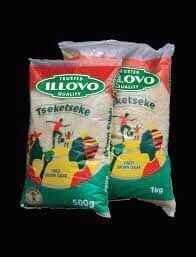By Burnett Munthali
Malawi is currently grappling with a severe sugar shortage, leading to rationing and soaring prices of the commodity. The crisis has been exacerbated by several key factors:
Illovo Sugar Company, Malawi’s primary sugar producer, reported a production deficit. Despite producing 230,000 tonnes of sugar, a shortfall of 20,000 tonnes against the required 250,000 tonnes has contributed to the crisis.
There are allegations that Illovo has been prioritizing exports to neighboring countries such as Mozambique, Zambia, and Tanzania, thereby reducing the availability of sugar in the domestic market.
The government’s delay in issuing import licenses under the Control of Goods Act (COGA) of 2018 has hindered other traders from importing sugar to alleviate the shortage. This bureaucratic bottleneck has significantly contributed to the scarcity.
The recent 44% devaluation of the Malawian kwacha has further strained the economy, causing prices of essential goods, including sugar, to surge. This devaluation has increased production costs, thereby inflating sugar prices.

Impact on the Population
The sugar crisis has led to severe repercussions for Malawians:
The price of sugar has skyrocketed, with a kilogram of brown sugar rising from K1,450 to K2,000, and white sugar reaching K2,250 . This price increase has placed a heavy burden on consumers already struggling with high living costs.
Due to the scarcity, retailers have been forced to ration sugar, limiting the amount consumers can purchase. This has led to long queues and widespread frustration among the population.
The scarcity and high prices of sugar are exacerbating the economic challenges faced by Malawians, contributing to a higher cost of living and increased inflationary pressures.
Proposed Solutions
Addressing the sugar crisis requires a multi-faceted approach involving both short-term and long-term strategies:
Import Licenses and Market Liberalization: The government should expedite the issuance of import licenses to allow other traders to bring in sugar from neighboring countries. This would help alleviate the immediate shortage and stabilize prices.
Increased Production and Efficiency: Illovo and other sugar producers need to ramp up production and improve operational efficiency to meet domestic demand. This may involve investing in better farming practices, infrastructure, and technology.
Diversification of Supply Chains: Encouraging the entry of new players into the sugar market can reduce dependency on a single producer and increase competition, which may lead to better supply and pricing mechanisms.
Government Intervention and Subsidies: The government can consider temporary subsidies or price controls to protect consumers from exorbitant prices during the crisis period. Additionally, regular monitoring and timely interventions can prevent future shortages.
Public-Private Partnerships :Collaboration between the government and private sector can ensure a more coordinated and efficient response to such crises. Joint efforts can focus on boosting production, managing supply chains, and ensuring fair pricing.
By addressing these key areas, Malawi can mitigate the immediate impacts of the sugar crisis and build a more resilient and sustainable supply chain for the future.


